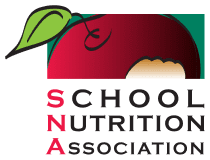Expand NSLP/SBP to offer healthy school meals for all students at no charge
Pandemic waivers allowed all schools to offer free meals to all students, ensuring every child was fueled for success. Since waivers expired, free meal service has continued in select states, such as California and Maine, and in high-poverty schools enrolled in Community Eligibility Provision (CEP). However, most school meal programs now require families to complete free and reduced-price meal applications, and non-eligible students must pay for meals.
In a recent SNA survey, school nutrition directors reported a wide range of negative impacts from the loss of free school meals for all students. Among programs that must charge for meals, 66.8% reported an increase in stigma for low-income students, who often depend on school meals as a key source of nutrition. Stigma and fear of reporting personal information on meal application forms are common barriers for families eligible for meal benefits. 90.6% of programs that must collect meal applications reported a challenge getting families to submit the forms.
As a result, 96.3% of programs that charge for meals struggle with unpaid meal charges/debt, a significant burden on families and school district budgets. 65.4% said debt is a significant challenge. When families are unable to pay for student meals, schools must cut into education funds to cover the debt. Among the 847 districts that reported the amount of their current debt, total accumulated unpaid meal debt exceeded $19 million.
SNA’s 2023 Position Paper urges Congress to offer healthy school meals for all students at no charge to:
Support academic achievement and foster healthy eating habits
Research shows students receive their healthiest meals at school, and school meals are proven to support learning, boost test scores, improve attendance and classroom behavior, and contribute to students’ overall health and wellness.
Combat food insecurity by ensuring equal access to school meals
One in eight, or 12.5 percent, of households with children struggle with food insecurity, putting children at risk of going without the nutrition they need to focus on their studies. Providing equal access to free school meals will ensure no child goes hungry during the school day, experiences shame or accrues unpaid meal debt.
Ease burdens on school nutrition staff, so they can focus on serving students
Offering free meals allows school nutrition professionals to focus on nourishing students, without having to worry about verifying which child is eligible for a free meal and which child must pay. Students benefit from a speedier meal service and more time to eat their fruits and vegetables.
SNA also supports proposals to advance these goals, including expanding the Community Eligibility Provision (CEP), eliminating the reduced-price category and making permanent the Direct Certification with Medicaid pilot program.
Category
Resource Type
Year Added
2023

